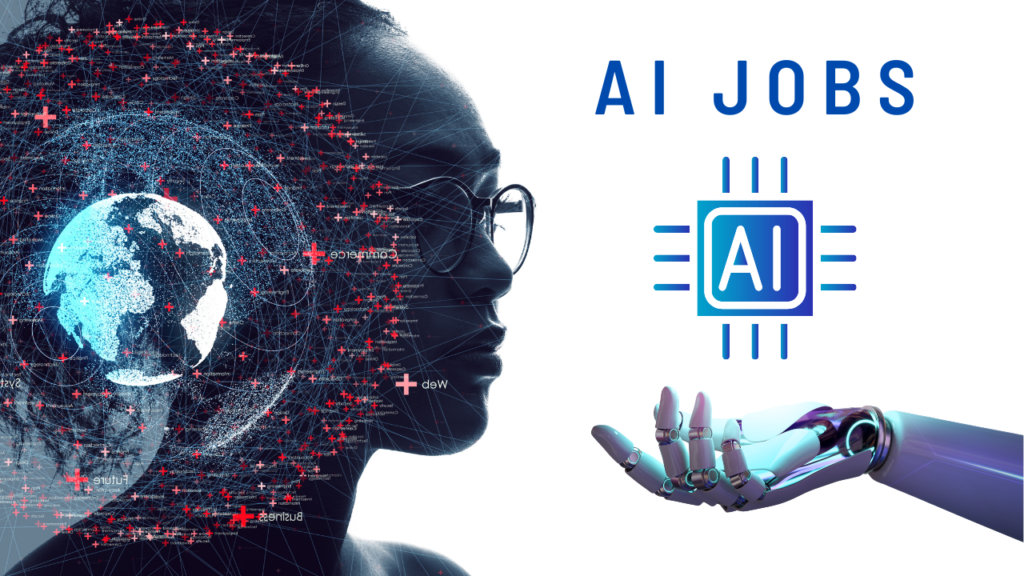|
Getting your Trinity Audio player ready...
|
These are the 15 Jobs that will be replaced by Artificial Intelligence (AI). AI is rapidly transforming the workplace, and as it continues to develop, it’s clear that many jobs will be replaced by machines. While some jobs will be safe from automation, many others are at risk of disappearing altogether. Here’s a list of 15 jobs that may be lost to AI in the near future.
- Data Entry Clerks: Data entry clerks are responsible for inputting data into computer systems. However, with AI-powered optical character recognition software, companies can easily scan documents and automatically extract information, eliminating the need for human data entry clerks. As a result, the demand for data entry clerks is expected to decline.
- Customer Service Representatives: Customer service representatives help individuals and organizations with inquiries, complaints, and other issues. However, AI-powered chatbots and virtual assistants can provide customer service and solve common issues without human intervention. As a result, the demand for customer service representatives is expected to decline.
- Technical Writers: Technical writers create instructional manuals, user guides, and other technical documents. However, AI-powered natural language generation software can automatically generate technical documents without human intervention. As a result, the demand for technical writers is expected to decline.
- Financial Analysts: Financial analysts help individuals and organizations make investment decisions by providing financial advice and insights. However, AI-powered robo-advisors can analyze financial data and recommend investments without human intervention. As a result, the demand for financial analysts is expected to decline.
- Insurance Underwriters: Insurance underwriters evaluate insurance applications and decide whether to approve or deny coverage. However, AI-powered underwriting software can analyze data and make underwriting decisions without human intervention. As a result, the demand for insurance underwriters is expected to decline.
- Appraisers and Assessors of Real Estate: Appraisers and assessors of real estate estimate the value of properties for various purposes. However, AI-powered valuation models can analyze property data and estimate property values without human intervention. As a result, the demand for appraisers and assessors of real estate is expected to decline.
- Credit Analysts: Credit analysts assess the creditworthiness of individuals and organizations and recommend credit limits and interest rates. However, AI-powered credit scoring models can analyze credit data and make credit decisions without human intervention. As a result, the demand for credit analysts is expected to decline.
- Travel Agents: Travel agents help individuals and organizations plan and book travel arrangements. However, AI-powered travel booking platforms can provide personalized travel recommendations and make reservations without human intervention. As a result, the demand for travel agents is expected to decline.
- Bank Tellers: Bank tellers help individuals and organizations with routine banking transactions, such as deposits, withdrawals, and check cashing. However, AI-powered banking kiosks and mobile apps can perform these tasks without human intervention. As a result, the demand for bank tellers is expected to decline.
- Market Research Analysts: They are responsible for gathering and analyzing data on market trends, consumer behavior, and other factors that can impact business decisions. This is another job that is at risk of being replaced by AI, as machine learning algorithms are becoming increasingly sophisticated at analyzing data and identifying trends.
AI algorithms can analyze vast amounts of data from a variety of sources to identify patterns and trends that would be difficult for humans to identify on their own. This means that in the future, businesses may rely more on AI algorithms to conduct market research, reducing the need for manual input from market research analysts. - Loan Officers: Loan officers are responsible for evaluating loan applications and determining whether or not to approve them. This is another job that is at risk of being replaced by AI, as machine learning algorithms are becoming increasingly sophisticated at analyzing financial data and making lending decisions.
AI algorithms can analyze vast amounts of data to identify patterns and trends and use this information to make more accurate predictions about the likelihood of a borrower defaulting on a loan. This means that in the future, banks and other lenders may rely more on AI algorithms to evaluate loan applications, reducing the need for manual input from loan officers. - Meter Readers: Meter readers are responsible for reading utility meters and recording the data. However, with the rise of smart meters, which can transmit data automatically, the need for human meter readers has declined.
- Telemarketers: Telemarketing is a job that involves calling people to promote products or services. However, with the rise of spam calls, many people are reluctant to answer the phone from unknown numbers. Additionally, AI-powered chatbots can be used to automate sales calls, making the need for human telemarketers less necessary.
- Medical Billing and Coding: Medical billing and coding are tasks that require a high level of accuracy and attention to detail. However, AI has the ability to analyze large amounts of data quickly and accurately, making it an ideal tool for medical billing and coding tasks. As a result, fewer human workers are needed for these tasks.
- Proofreaders: Proofreaders are responsible for checking written material for errors in spelling, grammar, and punctuation. However, AI-powered tools can do this task quickly and accurately, reducing the need for human proofreaders.
Conclusion
The rapid development of AI technology is transforming the job market, and it is clear that many jobs will be lost to AI in the coming years. While this may lead to some job losses in the short term, it is also creating new opportunities for those who are willing to adapt and learn new skills.
As AI technology continues to improve, it is likely that more and more jobs will be automated, and it is essential that individuals and businesses prepare for this change by investing in education and training programs that can help them stay ahead of the AI revolution.



